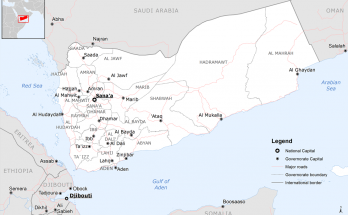
Egyptian President Abdel Fattah el-Sisi, seen during at a press conference with Russian President Vladimir Putin in Sochi in October 2018 – http://en.kremlin.ru/events/president/news/58842
A quick examination of recent Egyptian arms contracts, or a look at the country’s military force structures, demonstrates quite clearly that the Egyptian military prefers to remain flexible in its choice of arms suppliers. Just in the last few years, Egypt has imported American, Chinese, French, German, and Russian hardware, with more contracts in the pipeline. This sort of flexibility enables the Egyptian government to reduce political pressure in the event any supplier in particular chooses to restrict arms sales to the North African country. Cairo has put this approach on display in its negotiations for the acquisition of new warships.
The Egyptian Navy has undergone an overhaul since the start of President Abdel Fattah el-Sisi’s tenure. Two German submarines were already on order for the Egyptian Navy and, in 2014, the Egyptian government added two more to its purchase. The demise of a French-Russian amphibious assault ship contract prompted France to offer to sell the vessels at a loss to Egypt, which acquired them in a 2015 deal. This agreement with France followed one the previous year for a frigate and four corvettes. The modernization of other navies in the region, as well as the increasing militarization of the Red Sea by regional and global powers, is helping to spur this Egyptian procurement drive. Earlier this year, President Sisi inaugurated a new military installation that is said to be the largest base on the Red Sea.
Further procurement is in the works. Initially, Egypt seemed set to build off its warship agreement with France and order more corvettes. Under the original deal, Egypt’s Navy bought four Gowind 2500 corvettes. One of these was produced in France, while the other three are being built in Egypt. In April 2016, the same month that work began on the first of the Egyptian-made corvettes named Port Said, French publication La Tribune reported that Cairo and Paris were in talks on adding two more Gowind corvettes and other warships to the Egyptian Navy.
However, two stumbling blocks emerged in the Gowind negotiation process. The first problem to arise was financial. Though Egypt’s economy has grown steadily at rates of 4-5 percent since 2015, according to the International Monetary Fund, the budget has been squeezed amid large deficits. A significant chunk of the budget goes toward servicing the country’s large debt. In line with an economic reform plan, the value of the Egyptian pound has plummeted, making importing advanced foreign hardware that much more costly. France extended loans worth billions of euros for the first set of military hardware sold to Egypt, but in the follow-up negotiations, the French Ministry for the Economy and Finance initially balked at the idea of France extending further financial support for any Egyptian arms procurement, including for the corvettes. Strong support from French President Emmanuel Macron helped ease the Ministry of Finance’s concerns about issuing more credit, but talks dragged on. La Tribune reported in July 2018 that Egypt still felt the price for the corvettes was too high.
Another stumbling block has been political. The 2014 and 2015 Egypt-France arms deals heralded a deepening political connection between the two countries. President Macron made a point of saying in October 2017 that he does not “lecture others” on human rights in response to criticism about his embrace of Egypt. He added, “My deeply held conviction is that it’s in President Sisi’s interest to accompany the defense and consolidation of human rights by the Egyptian state, in the context that only he can be the judge of.”
Relations took a turn as talks on follow-on arms packages lagged. The declining stock Egypt placed in its relationship with France, at least as it pertains to the arms market, could be seen quite clearly by 2018. While some top officials close to President Sisi, such as the Navy commander, Vice-Adm. Ahmed Khaled, attended the launch of Port Said in September 2018, President Sisi himself was not present, despite the significance of the occasion for Egypt’s shipbuilding industry. Egyptian Defense Minister Mohamed Zaki did not attend the launch ceremony either. Months later, President Macron did raise the issue of human rights with President Sisi at a meeting in Cairo, arguing that “things have got worse” on the subject of Egyptian human rights since last meeting the Egyptian leader. La Tribune later referred to the decision to chastise President Sisi as a “fatal error” in relations between the two countries, especially with regard to weapons contracts. Dialogue between the sides continues, but no progress on the follow-on Gowind corvette sale has been reported.
As negotiations with France on the sale of new corvettes ground to a halt, other European suppliers stepped in to fill the void. Germany’s ThyssenKrupp Marine Systems (TKMS) – already building submarines for Egypt – offered its MEKO-A200 frigate, Italian shipbuilder Fincantieri proposed a sale of more FREMM frigates for the Egyptian Navy, and Spain’s Navantia advertised its products for the Egyptian Navy.
The TKMS bid, with strong German government backing, took the lead in Egypt’s search for new warships. Egypt passed up the MEKO-A200 when it first bought Gowind corvettes, but the stalled talks with France over another batch of corvettes revived Egypt’s interest in the A200. Talk of an A200 deal picked up steam over the summer of 2018 and, one month after skipping the launch of Port Said, President Sisi was in Germany praising defense ties between the two countries. In early 2019, the German government approved the export of one A200 to Egypt. Cairo may ultimately procure up to six warships, at least three of which are A200s, as part of a EUR2.3 billion deal. The purchase was initially to be funded in part by Egyptian security partner Saudi Arabia, but a spat between Germany and Saudi Arabia – over Germany’s arms embargo on Riyadh in response to the killing of Saudi dissident Jamal Khashoggi and the war in Yemen – prompted Riyadh to pull out of financing the agreement. Instead, credit insurance company Euler Hermes is facilitating the A200 deal.
Evidently, despite completing the A200 purchase, Egypt remains interested in acquiring still more warships, turning to Italy for talks on the FREMM. That dialogue with Italy has been rekindled even as relations with France have collapsed is noteworthy given that Italy-Egypt ties only recently emerged from a difficult period. The killing of an Italian doctoral candidate in Egypt in 2016 led Italy to recall its ambassador to Egypt. The two countries remain at odds on Libya, where Italy backs the U.N.-supported Government of National Accord (GNA) while Egypt has provided support to Gen. Khalifa Haftar, whose Libyan National Army hopes to oust the GNA from Tripoli under an offensive launched last year.
Even so, Italian media revealed in February 2020 that talks were ongoing between the Egyptian and Italian governments on the sale of a pair of FREMM frigates to the Egyptian Navy. According to the reports, Egypt wants to acquire Spartaco Schergat and Emilio Bianchi, two warships produced for the Italian Navy but not yet commissioned into service. These might cost a combined EUR1.2 billion. Italian investment bank Cassa Depositi e Prestiti will issue an export financing loan worth up to EUR500 million. The talks are believed to be at an advanced stage and there are rumors in the Italian press, which have not been confirmed, that the sale of these two FREMMS might be the first part of a larger arms deal worth billions of euros between the two countries.
Egypt’s rapid turn from France to its European competitors on warship procurement highlights Cairo’s procurement strategy, which is to cultivate ties with a number of suppliers that can be leveraged in the event relations with any one market deteriorate. This approach is not without its drawbacks. Buying similar platforms from multiple suppliers is expensive up-front. Systems from different suppliers may not be easily compatible in the field, and performing maintenance will be more costly given a lack of commonality in parts. Egypt’s leadership has nevertheless prioritized escaping external pressure on its policies, so it chooses to rely on a diverse pool of arms suppliers rather than any one in particular. France’s defense industry benefited from Egypt’s procurement strategy in the early days of the Sisi administration – Cairo turned to Paris and Moscow when political relations between Egypt and the U.S. nosedived over the violent circumstances that brought President Sisi to power – but, just as quickly, winter has set in.
Military markets analyst, covering Eurasia, Middle East, and Africa.




